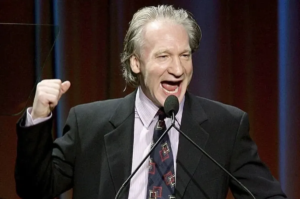Why I’m a Conservative, Part I

Bill Maher, who has identified (and been identified) as a typical Hollywood Liberal for most of his career, has, in recent years, felt the need to explain why he sometimes makes fun of Woke ideas and Woke ideology.
His explanation is pretty good. He says something like:
“They [the Woke mob] accuse me of abandoning the cause in recent years. Not true. What has happened is that the center of Liberal consciousness had drifted to the extreme left. My values and beliefs haven’t changed. Theirs have.”
I take that to be a fair and honest description of Maher’s personal experience. And when I first heard it, I liked it so much that I thought about using it as a response to friends and family members that accuse me of having suddenly become a “Conservative” (i.e., Fascist, Racist, Misogynist, Homophobe, etc.).
But then I realized that, unlike Maher, my political, economic, and social views have changed. And that’s because, when I was younger, my opinions were based on what I knew back then – which was, in terms of making adult decisions, next to nothing.
Work, for example. From the age of six, I had chores that I was obliged to do. And I had my first job (on weekends and holidays) at the age of twelve. So, by the time I was a senior in high school, I had a great deal more experience than most of my classmates in working hard to make extra spending money. But I had no experience with the kind of serious financial obligations I would be taking on as an adult – to meet my own needs as well as the needs of my future dependents.
I began working full-time when I was 18 and have worked full-time ever since. And during those years, I learned a great deal more about making money. I also, very gradually, learned to make smarter choices in the way I managed that money to chart a better and safer future for myself and my family.
This is what we do – what we are programmed to do. It is how we survive and prosper in an unforgiving world. It is how we propagate our species.
This takes me back to the assumption behind both the criticism of Bill Maher and his defense – that there is something good about maintaining one’s ideas, views, and values as time passes. Think about it. It’s a completely dumb idea. Having the same ideas, views, and beliefs at 50 that you had at 20 is not virtuous. It’s a form of willful stupidity.
And this takes me to my current thinking. I don’t feel ashamed of abandoning so many of my younger beliefs and ideas. I feel good about it. I feel like what is happening in both my rational and emotional brain parts is what nature intended.
Becoming conservative as one ages is good for the individual, the social and work environments one lives in, for one’s particular DNA, and ultimately for the survival of the species!
The Three Stages of Learning
At every stage (and facet) of life, there are three levels of learning: ignorance, knowledge, and wisdom.
* Ignorance gives one the ability to believe in and be stirred into doing the most incredibly brave and stupid things.
* Knowledge gives one the ability to teach and lead the ignorant.
* And wisdom allows one to teach and lead the knowledgeable.
We are all born ignorant. We are also born with an insatiable attraction to knowledge. Every major stage of life involves learning countless thousands of wonderous things and acquiring countless thousands of small, sometimes unconscious, physical, verbal, and mental skills. This is essential for not just survival, but success in every realm of human experience.
Wisdom comes from knowledge. Wisdom is about understanding the limits of knowledge and the danger of certainty. Wisdom is about realizing and remembering how many bits of certain knowledge one had at some point that turned out be untrue – or at least not as universally true as one had imagined.
Wisdom is a critical component of group intelligence – perhaps the most critical component, because it allows the group to try and fail, but live to another day.
In case you’re wondering where I’m going with this, I am not going to make the argument that political Conservatives are wise and political Liberals are unwise.
What I’m saying here is that whatever world one finds oneself in, there is always a tension around important decisions – between those advocating for quick and significant action, and those that pull back on the reins.
In Part II of this essay, I’ll give you some examples of how these three levels of learning work their way into just about every social institution and just about everything we do.
 MarkFord
MarkFord